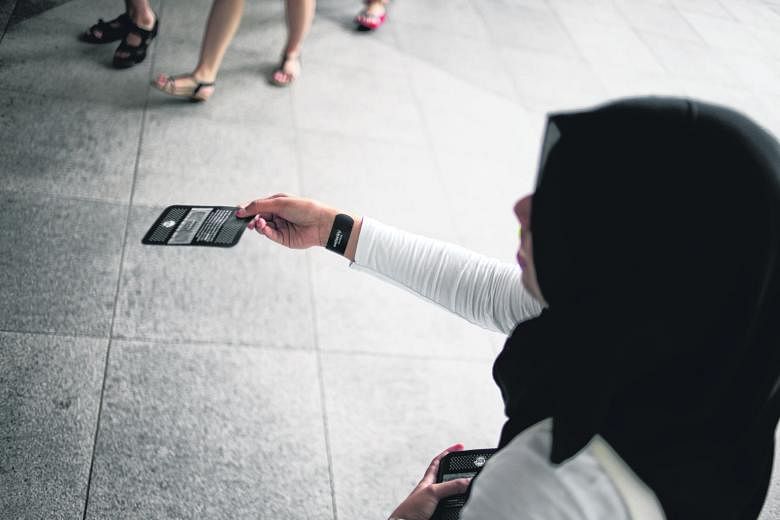What would you say to a friend if you saw a plaster on his wrist?
Black plasters were the "conversation starters" that volunteers of the Samaritans of Singapore (SOS) gave out in 16 places yesterday, as part of its World Suicide Prevention Week campaign.
The first step in preventing suicide is getting people to talk about their feelings, said the SOS, which is stepping up efforts to reach out to youth after teen suicides hit a 15-year high last year with 27 cases. This was double that in 2014, despite a drop in overall suicides.
Last month, two students from a top junior college killed themselves within 10 days of each other.
"The pressure to do well in a competitive and modern society is one aspect of it," said SOS executive director Christine Wong.
-
HELPLINES
-
SAMARITANS OF SINGAPORE: 1800-221-4444
SINGAPORE ASSOCIATION FOR MENTAL HEALTH: 1800-283-7019
INSTITUTE OF MENTAL HEALTH'S MOBILE CRISIS SERVICE: 6389-2222
CARE CORNER COUNSELLING CENTRE (MANDARIN): 1800-353-5800
SILVER RIBBON: 6386-1928
TINKLE FRIEND (FOR PRIMARY SCHOOL-AGED CHILDREN): 1800-274-4788
Troubled young people aged 10 to 19 who reached out to the suicide prevention agency last year cited mental health issues, academic pressure, and relationship problems at home and school as the most common sources of stress.
This has been the trend in recent years, she said.
Suicidal youth that the SOS worked with also showed "a general disconnect" with their families.
Young people tend to prefer communicating over virtual interfaces to face-to-face interaction and could use lingo unfamiliar to their parents.
Teenagers struggle with identity and belonging in adolescence, which can be a difficult time, added Ms Wong. Suicide risk goes up when youth have vulnerabilities such as mental health issues and stressors at home and school.
She said: "Suicide prevention is more than just about the relevant professionals averting crises in an emergency situation. It starts with all of us doing something every day, in our own little ways."
This is the second year SOS is giving out black plasters to raise awareness. Last year, it gathered almost 4.5 million impressions of the campaign on social media.
Yesterday, many who collected the plasters wore them on their inner wrists. Many posted pictures under #HOWRU hashtag aimed at encouraging peer support. Others added a virtual plaster to their social media profile pictures.
An SOS volunteer in her 50s, who declined to be named, said a member of her family once attempted suicide but survived and is now leading a fruitful life.
She said: "This made me see that suicide really is preventable and life can hold so much more for a person after they get through whatever crisis they are facing."


